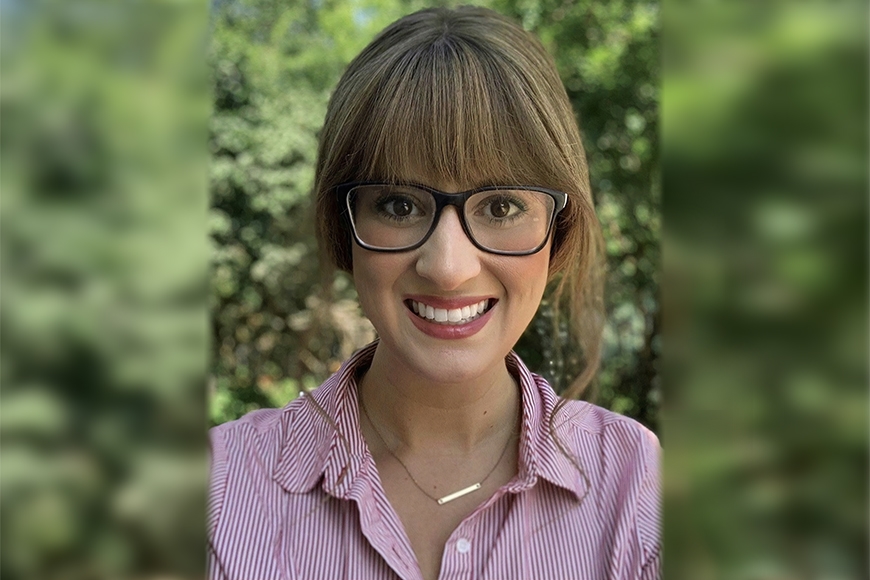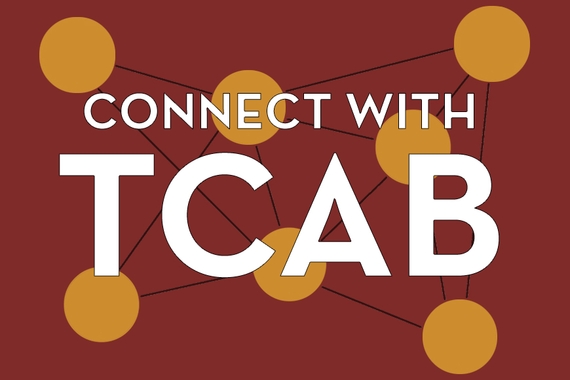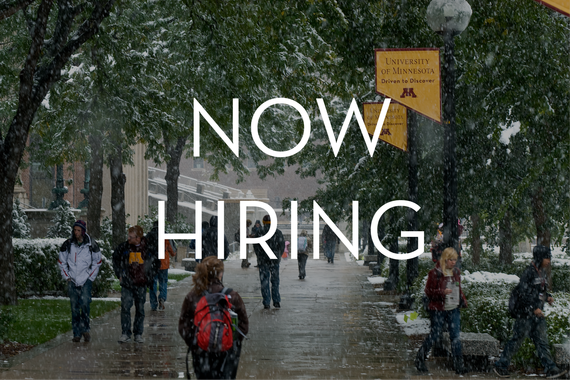New to the U: Rachel Presley Seeks to Bring New Perspectives to Rhetorical Theory
When Rachel Presley was in school, she realized that while her history books referred to the war that was fought in the United States between 1861-1865 as the War of Northern Aggression, other history books called it the Civil War.
It made her think more critically about “language use and the way in which we’re retelling histories, and whose histories are projected in the forefront of our national consciousness.” While this interest in language and how histories are told remained with Presley through high school, when she got to college she pursued a pre med route. Her love of English and chemistry made medical research publishing seem like the perfect career choice.
However, an introductory course in rhetorical theory, the study of persuasion, and an influential mentor reignited her zeal for rhetoric. She pursued a PhD from Ohio University and has recently joined the College of Liberal Arts faculty with a joint appointment between the Departments of Writing Studies and Communication Studies.
Presley is excited to share her passion and research with her students: “I think what drives me is finding a way to share what I’m so passionate about in a way that translates to my students so they become passionate as well.”
Creating a Diverse Curriculum
Pivoting away from traditional Western thought and toward nontraditional ways of thinking about citizenship and social justice, Presley is thinking critically about past and contemporary indigenous life in the United States.
She is addressing what is primarily being projected in dominant rhetoric through media and public classrooms—looking only to Socrates, Plato, and Aristotle in rhetorical theory—and rewriting that narrative. Her desire is to introduce her students to other rhetoricians and perspectives to bring more diversity to the field. “What I’m most interested in is finding ways to integrate [indigenous rhetoric] into the dominant rhetoric, and then productively undoing that dominant system,” Presley says.
In the classroom, it is a Westen concept for Aristotle to be considered the “father of rhetoric.” Presley is aiming to decolonize her classrooms by introducing other philosophers and rhetoricians who are women, women of color, and people of the queer community. She is taking on the responsibility of undoing what is considered as a Western norm.
The Importance and Implementation of Sound
Presley, fueled by her love for teaching, is in the midst of developing an entirely new freshman seminar. She fittingly named it “The Soundscape of Social Justice,” because it will focus on the literal sounds of resistance, like protest chants and the use of sound as a weapon to disperse or control crowds. “It’s been super fun to look through that literature and start pulling [the seminar] together for next year,” Presely says.
Since this course is designed for freshmen, Presley is brainstorming how she wants to construct assignments and the final project. To harness the creative energy of these new students, Presely is designing nontraditional projects, like a staggered podcast, instead of using traditional writing assignments. Her goal is to develop a captivating class that engages with the sonic sphere, meaning she wants to focus on sound as a way to communicate and learn.
A Balancing Act
Working in two different departments at a university might sound daunting, but Presley has discovered that working for both writing studies and communication studies was easier than she expected. “There’s already so much overlap in the content that both departments are studying and teaching. Oftentimes, our students are moving fluidly between both departments, which allows me to pivot between both places,” Presley explains.
Presley is impressed with the strong leadership in both departments, which is what she credits for her easy transition. “Lee-Ann Kastman Breuch, [chair of the Department of Writing Studies], and Ron Greene, [chair of the Department of Communication Studies], are the best people that you could have [as chairs] in terms of the department. I think it’s a big reason why it’s been such a smooth transition,” Presley says.
Looking Ahead
With writing and communication studies working in tandem, Presley is excited to see what this next year brings. In July of next year, Presley has the opportunity to attend a summer-long seminar hosted by Noam Chomsky, renowned philosopher and linguist, in New York. She hopes to discover “creative, alternative approaches to finding ways to undo the inequity and the violence that we're seeing and experiencing on a daily basis.” Presley recognizes that what’s being done right now in terms of social justice movements isn’t working*, so she hopes this conference will enlighten and inform her on how to take a new approach.
Additionally, she is working on a digital multimodal project that explores a surround-sound approach to thinking about state sponsored racial violence. Although it is a prototype now, Presley wants to apply for grants in order to develop this project and have it reach its full potential.
*Presley was interviewed earlier in spring 2020 for this article and wanted to add, “Our community’s response to the horrific death of George Floyd is exactly the type of grassroots organizing that I am pointing towards. [The public’s unrest at this injustice] is a great example of how we can collectively resist and incite change.”
This story was written by an undergraduate student in Backpack. Meet the team.



